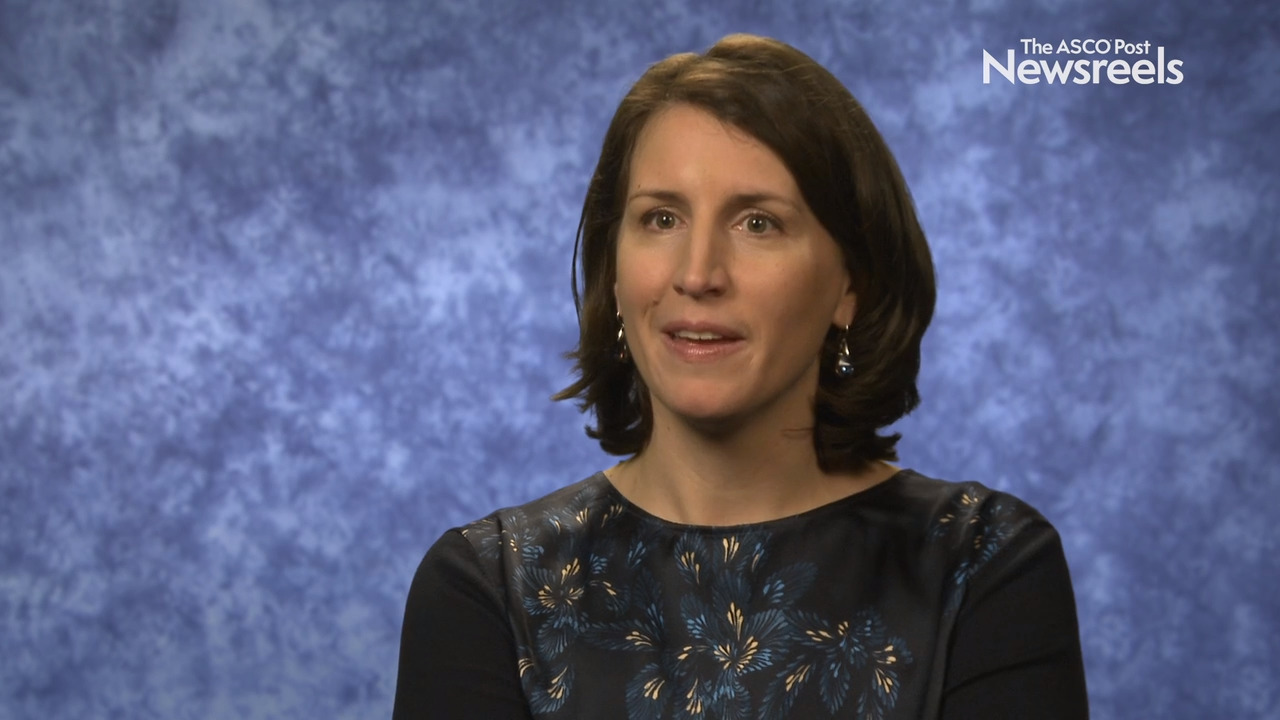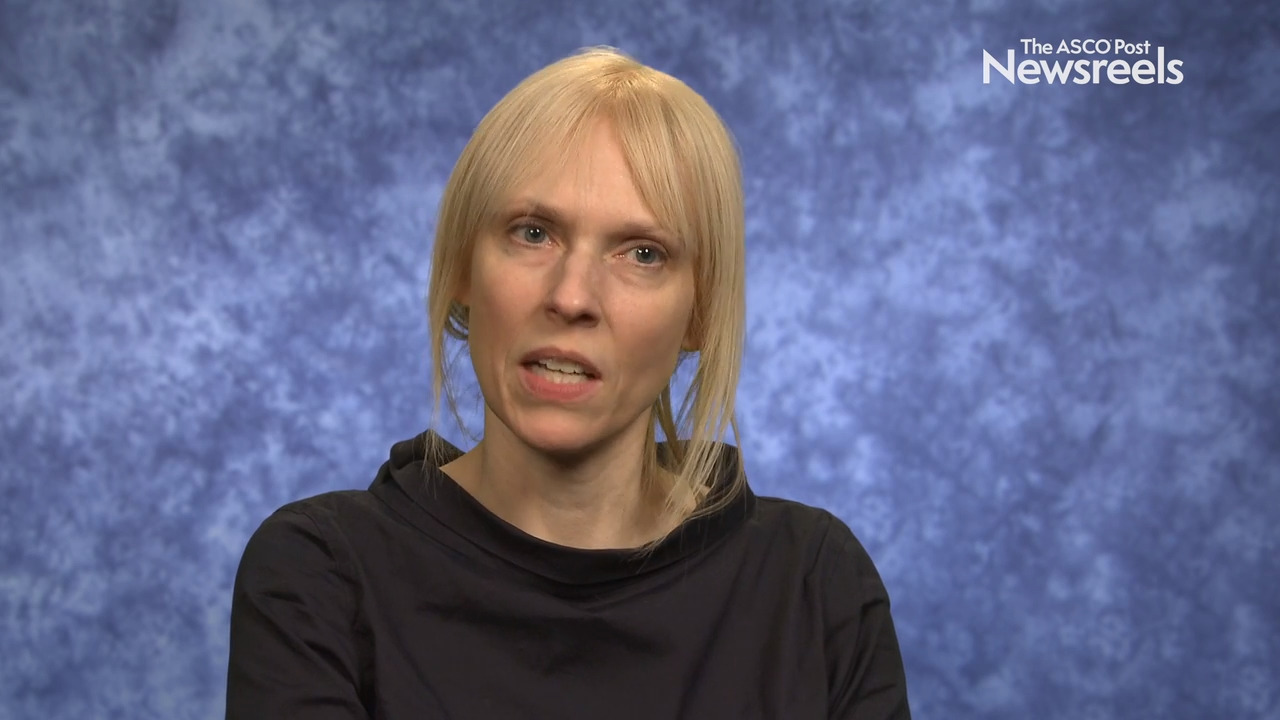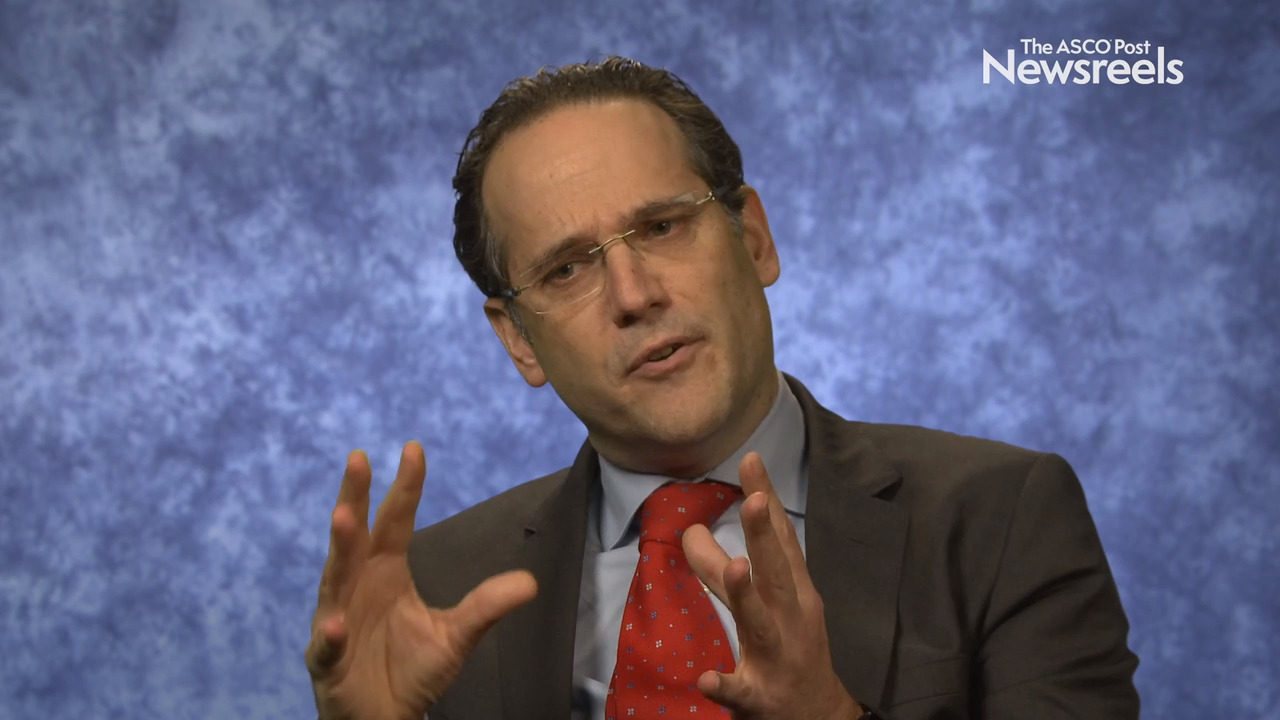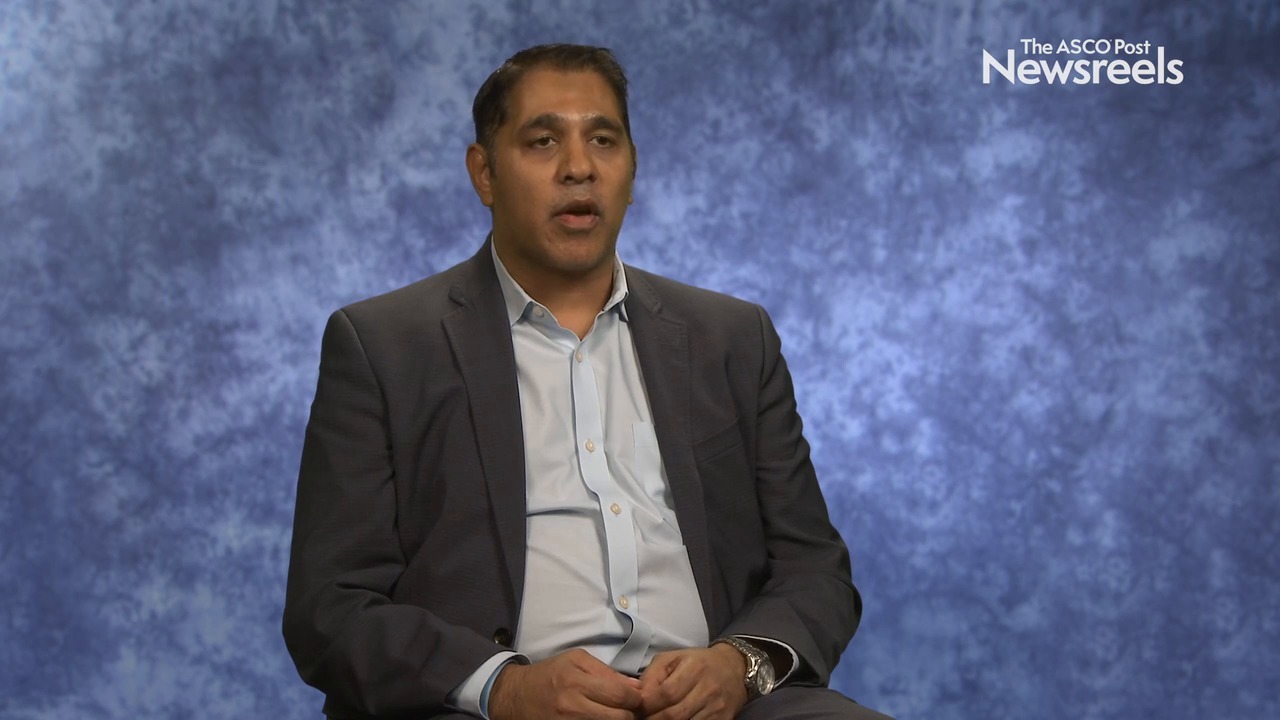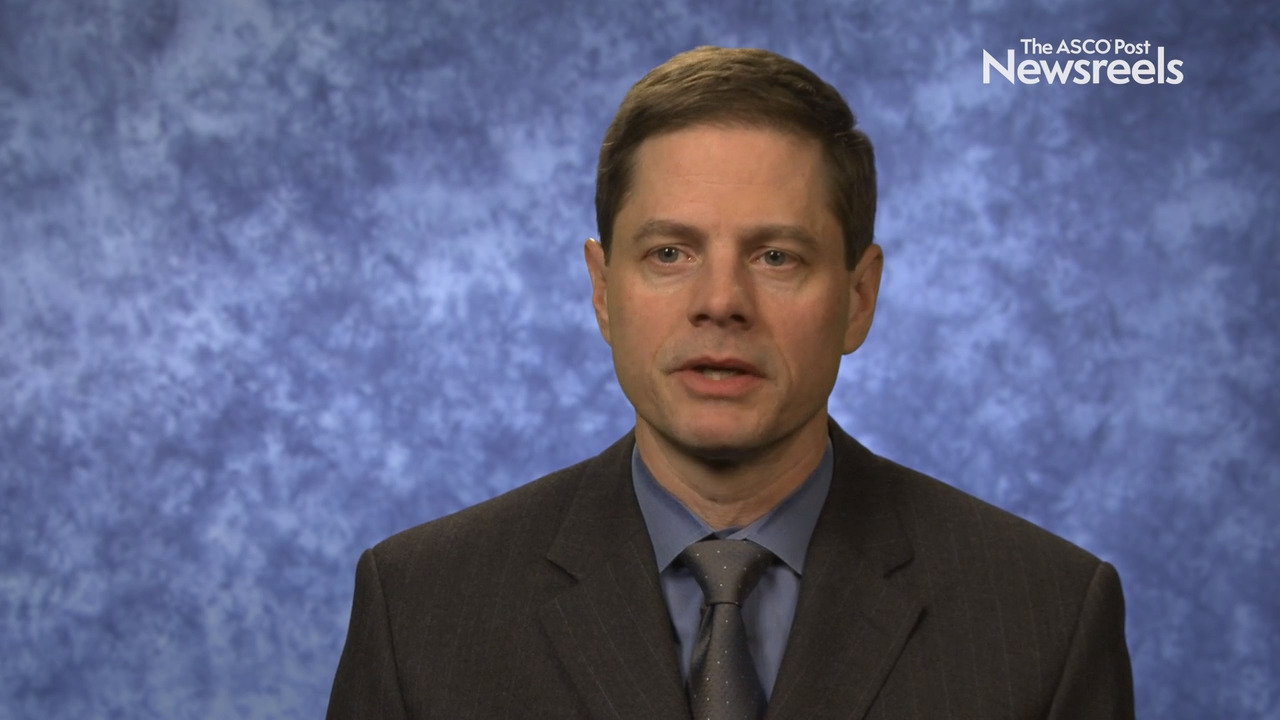Stefanie C. Fischer, MD, on Nonseminoma: Outcomes After Adjuvant Bleomycin/Etoposide/Cisplatin
2019 Genitourinary Cancers Symposium
Stefanie C. Fischer, MD, of Manchester Cancer Research Centre and The Christie NHS Foundation Trust, discusses an international retrospective analysis of the rare clinical scenario of men relapsing after adjuvant treatment with bleomycin/etoposide/cisplatin for clinical stage I nonseminoma (Abstract 510).
Laurence Albiges, MD, PhD, of Gustave Roussy, discusses findings on the safety and efficacy of nivolumab used in a “real world” prospective study on metastatic renal cell carcinoma (mRCC). This research was conducted after nivolumab was approved for the treatment of mRCC following failure of one or two tyrosine kinase inhibitors (Abstract 542).
Silke Gillessen, MD, of Cantonal Hospital St. Gallen, discusses data from a phase III study on the incidence of hypocalcemia in patients with castration-resistant prostate cancer treated with denosumab. The trial was designed to assess prevention of symptomatic skeletal events with denosumab administered every 4 weeks vs every 12 weeks (Abstract 139).
Ignacio Duran, MD, PhD, of the Hospital Universitario Marqués de Valdecilla, discusses an overall survival analysis of the phase III METEOR trial of cabozantinib vs everolimus in advanced renal cell carcinoma (Abstract 550).
Sumit K. Subudhi, MD, PhD, of The University of Texas MD Anderson Cancer Center, discusses the initial results from a phase II study of nivolumab plus ipilimumab in the treatment of metastatic castration-resistant prostate cancer (Abstract 142).
Brian I. Rini, MD, of the Cleveland Clinic Taussig Cancer Institute, discusses current models used to estimate the risk of recurrence as well as genomic data that could help pinpoint individual tumor biology.
